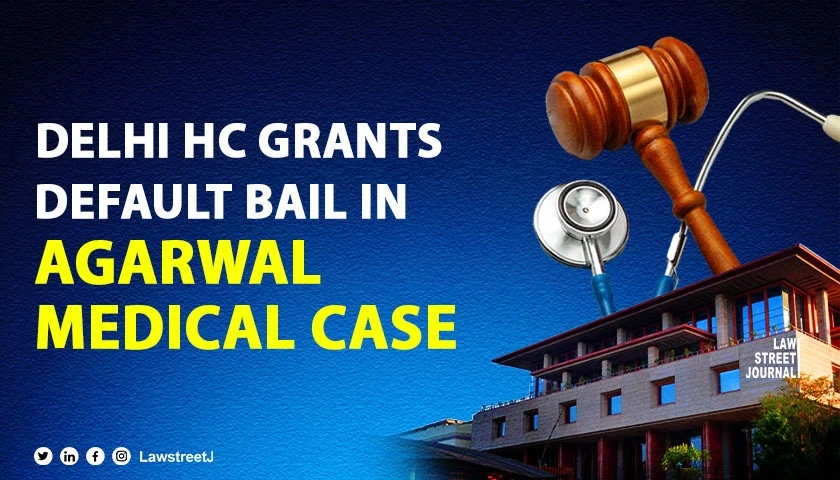New Delhi: In a significant development in the much-publicized case involving Agarwal Medical Centre, Greater Kailash, Part-I, New Delhi, the Delhi High Court has granted default bail to Neeraj Agarwal and Pooja Agarwal. The case, which attracted media attention due to its legal intricacies, centers around allegations against the Agarwals under Section 304 of the Indian Penal Code (IPC).
The judgment, delivered by the Hon'ble High Court of Delhi in the matters titled Pooja Agarwal vs. State (NCT of Delhi) and Neeraj Agarwal vs. State (NCT of Delhi), addressed the procedural issue of extended remand in cases under Section 304 IPC. The court emphasized that if the police diary does not clearly indicate that the accused is likely to be charged with an offense under Section 304(I) IPC, the Magistrate must ensure that the period of remand does not exceed 60 days.
The court further elaborated that in cases where only Section 304 IPC is invoked, which may involve charges under Section 304(I) or Section 304(II), the accused cannot be detained beyond the statutory 60-day period. The Hon'ble Court clarified that if the police wish to charge the accused under Section 304(I) IPC, they must inform the Magistrate before the 60-day period lapses. Failure to do so would entitle the accused to default bail.
The court also noted that the Magistrate is required to list the matter for remand on the 60th day and ensure that any conversion of charges under Section 304(I) IPC is properly scrutinized. The Magistrate’s order to extend the remand, the court emphasized, is not a mere formality. The decision must be made after applying judicial mind, particularly regarding the police's request for further investigation and the propriety of extending detention. The Hon'ble Court added that while the Magistrate is not expected to conduct a mini-trial at this stage, they must carefully assess whether continued detention is justified or if the accused should be granted bail.
Senior Advocate Mr. N. Hariharan, along with Advocates Mr. Prateek Bhalla, Ms. Mallika Chadha, Ms. Punya Rekha Angara, Ms. Kumud Nijhawan, Mr. Sharian and Mr. Aman Akhtar represented the Agarwals in this case, presenting arguments that ultimately led to the favorable judgment.
This ruling is expected to have significant implications for similar cases where extended detention is sought under Section 304 IPC without proper procedural adherence.







![Delhi High Court Sets Aside Arbitral Tribunal's Award Against NHAI in Highway Project Delay Case [Read Judgment]](/secure/uploads/2023/07/lj_9605_23374c2e-392c-4491-a2fe-f2f12fc5272f.jpg)
![Delhi Court Rejects Stay Request in Defamation Case Against Rajasthan CM Ashok Gehlot [Read Order]](/secure/uploads/2023/08/lj_5208_80de1ddc-d76a-4f7f-b180-408e3ae14fb4.jpg)





